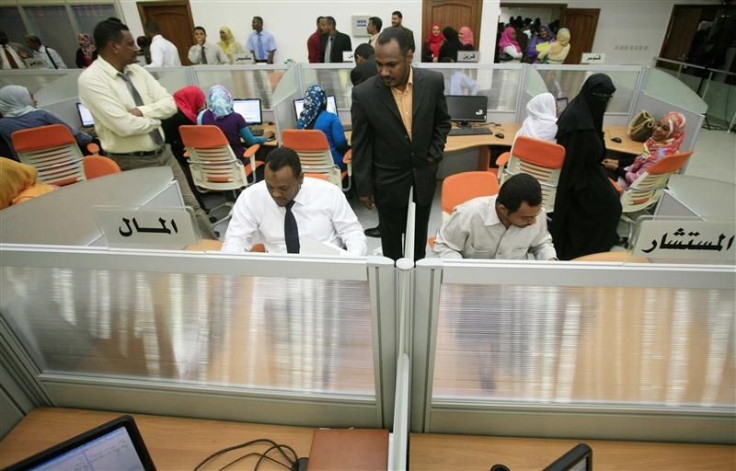Khartoum Bourse Launches Electronic Trade

(Reuters) -- The Khartoum stock exchange on Sunday launched a long-awaited computer trading system that will bring to an end an era of scribbling stock prices on white boards and also marks Sudan's efforts to attract more investment.
But very thin trading in the first session of the electronic system -- a gift from Oman -- highlighted the need to overhaul regulations and transparency.
None of the 40 stocks listed on the display in the new trading room moved in the first 45 minutes. Trading focused as always on government-issued Islamic bonds, known as shahamas, which changed hands for 114,036 Sudanese pounds ($38,000).
I think the new electronic system will improve transparency and provide more information so volumes will rise much, said Taha Hussein Yousif, General Manager at local broker HH Stock Exchange Co.
But we also need more regulation and information on companies. We need a new security law, he said.
He said there was interest in large firms such as telecoms Sudatel or Islamic banks such as Faisal Islamic Bank but with little corporate information on other firms overall liquidity was thin.
Altayeb Musawi Shaigoog, legal expert at the Muscat partner bourse, said the new system was a big step forward to give access to other exchanges and allow more cross listings.
They now need to develop regulations, the primary market with IPOs and have solid companies, he said.
Officials hope the bourse will attract more investment as the country seeks to overcome a severe economic crisis after losing two-thirds of its oil production to South Sudan.
This is the beginning of new era. God willing, there will be also trading with gold, minerals and real estate, said the stock exchange's general manager Osman Hamad Khair.
The Khartoum bourse is small by international standards with a market capitalization of just around $2.1 billion. Up to 90 percent of trading is in shahamas because they are guaranteed by the central bank.
The government is in the process of overhauling an existing securities law that dates back to 1994 but no decisions have been made yet.
(Reporting by Ulf Laessing; Editing by Jane Merriman)
© Copyright Thomson Reuters 2024. All rights reserved.











